Hey there fellow Sea Changers. Today we are going to continue our journey into all things affiliate marketing and discuss my 10 tips for affiliate marketing success. These are the elements that I believe you need to be keeping in mind – and explore – as you continue through your campaign to build a solid affiliate marketing website that can sustain you for years to come.
So sit back, grab a drink and a notebook and let's dive right in…
- Know your product
- Ensure your niche is sustainable
- Know your audience
- Solve problems, produce value
- Use Keywords and SEO techniques
- Be trustworthy and transparent
- Choose good affiliate programs
- Create an email list
- Share your stuff
- Get help
Tips for Affiliate Marketing Success
Ok, so let's have a look at some things we can do to assist in our affiliate marketing journey below:
1. Know your product
One of the biggest mistakes that new affiliate marketers make is trying to choose a niche that they know little about. This may be because they have heard that there is good money to be made in that niche or because it is the one that they first read about and thought they should give it a try. There is absolutely no reason why you cannot build a website around this niche down the track but for the time being, I strongly suggest that you stick with something you know.

Why? Well mainly due to the fact that unless you have experience in your chosen niche, then you will be trying to not only learn how to start and rank a website (which can be hard enough as it is) but also a new product or niche as well. The other reasons for this include:
- You can get your content out at a faster rate – The key to success for any new website is getting as much quality content out there as you can so that search engines start to rank you. It is a lot easier to write about something that you know about – and even more so if it is something you are passionate about.
- Content ideas come easier – One of the most common problems that new affiliate marketers face is continuously coming up with new content when writing a blog post. This is a lot easier if you have a good understanding of your niche as you are able to work on a list of subjects such as “How to's“, products to review, satellite products (up sells and cross sells) and answers to common problems etc.
- You know who to target – If you are ‘living' that niche, there is a good chance you know who else is as well. This assists you in working out how to write your posts, where your target audience hangs out, what they like and what social media platforms they use etc.
2. Ensure your niche is sustainable
We have already discussed the fact that as you commence your affiliate marketing journey you should have a good working knowledge of the niche that you have chosen. Another key reason for that is that it will be of assistance in making sure that your chosen niche is sustainable. By sustainable we mean:
- Not be too small or targeted – If you go too narrow within your niche you can face the real possibility of simply exhausting your list of topics or running out of people to sell to.
- Not be too broad – On the other hand – if your niche is too broad it can very easily become directionless as you are trying to cover too many topics without really becoming an authority in any of them.
Let's use an example here… Say you had were looking at a niche around Televisions. Once you wrote all about televisions, where can you go from there? If you expanded to HiFi equipment you can then start to talk about which video cameras, sound bars and cables etc. work best with each television or review each individually. The niche is narrow enough to get people who are looking to fit out their home cinemas, but not to narrow that they can only find out about half of the equipment that they need. And finally:
- Your niche needs to be evergreen – Meaning that it is not going to go out of date. The HiFi niche outlined above is a good example of an evergreen niche as there will always be new models and technology to allow you to simply move and refresh with the times. A niche covering something like paraphernalia for an upcoming election for example is probably useless once the election is done hence not evergreen.
3. Know your audience

We have touched on this already as you should have a good grasp of this based on your knowledge of your niche. However, make sure that you really know about your intended audience – and not just what you think you know. You need to know:
- What their interests are.
- Their demographics – age, gender, social standing, affluence, marital status, geographic location etc.
- How they like to consume information – pictures, video, blog posts etc.
- What social media platforms they use.
- When they are active online.
- What forums, online or social groups they belong to.
Tip: If you are not sure on some of the marketing aspects of your demographic why not spy on your competitors? How are they connecting with your intended audience? Are they active on YouTube? Do they write in an extremely informal manner on their website or is it short sharp snippets of info on Twitter? If it is working for them, then maybe that is a good starting point for you as well.
4. Solve problems, produce value
If you have read any of my other posts on this site then you will know that this is one subject that I harp on about more than most others… Your focus must be on solving problems and providing value and not just on making sales. Not only will this process allow you to build a solid following with your readers, but also generate much higher rankings within the search engines.
Write for your audience – remember we have discussed the advantages of knowing who they are – answer their questions, write about their interests and provide valuable, quality information to them. Absolutely you need to place your affiliate and sales links within your pages so that they can make a purchase, but these must always be secondary to the quality of information that you are providing.
Tip – I use one rule of thumb here – If they can get some information and assistance from your post or video without having purchased anything, then you are on the right track!
5. Use Keywords and SEO techniques
SEO – Search Engine Optimisation – is a very long, and at times complex beast which I have covered within another post so I won't carry on about it too much here. For success as an affiliate marketer however, you do need to make sure that you are considering SEO at every point as you work through your site. These include:
- Keywords – Keywords are crucial to the success of any affiliate marketing website as, in the simplest of terms, these are the words that your readers will enter into search engines in order to find your site. Think back to our HiFi example. What would you enter into a search engine if you wanted to find out about Bluetooth sound bars? Would you type “best Bluetooth sound bars”, “Bluetooth sound bar review” or a would you search for a particular brand? You need to ensure that you have these words within your post to give yourself the best possible chance of being found. Luckily, there are a number of keyword search tools that make this process a little easier for us as well.
- SEO practices – in addition to selecting appropriate keywords, there are a number of other simple-to-complete SEO processes that you can implement within your website and posts to give yourself the best chance of attracting visitors. These include:
- Ensure that your posts are at least 1000 words.
- Write naturally and SPELL CHECK.
- Use your keywords in the title, alt text of all images and within the Meta Title and Meta Description.
- Include a video with relevant keywords in the title and description – and mention them in your first spoken sentence.
- Request indexing via Google Search Console and Bing Webmaster Tools.
That's right! Wealthy Affiliate provided me with all of the tools and training I needed to get this post in front of my audience - a.k.a YOU!
You too can start your very own online business here that can make you money from anywhere in the world!!
6. Be trustworthy and transparent
This is an interesting area of consideration and one that is probably something that is only an issue when it is noticed. But if you think about your own buying habits I am pretty sure that you will agree that you tend to only purchase from those that you can trust. I mean how many times do you hear of large corporations struggling for a while if their trust factors are brought into question? The same goes for your site – people will only purchase from you if they trust you. Lose that trust and you will lose the sale.

In most cases, if you are adhering to step 4 above and writing to provide valuable solutions for your readers without pushing for a sale, then most of your work is done for you. And trust was one of the points I was getting at when I said that if you write for your audience and not the sale, then there is a much greater chance that they will return and buy from you in the future. The online world is unfortunately full of cheaters and scammers so it can take a while for trust to be built.
The other major influencing factor here is transparency – most readers will accept that you are trying to sell them something but if you try and hide it, or even worse, try and trick them into a sale then they will drop you like a hot potato.
Some other ways that you can build trust include:
- Keep your site tight – Spelling mistakes, poor quality images or images that don't load, shoddy links to other sites and any other cheap looking add-on will erode trust almost immediately.
- Don't add too many sales links – Absolutely include sales links and call-to-action buttons on your site – after all, that is why you have it. But if you make them the feature of the page rather than to supplement it, you will lose your readers.
- Add disclosures on your page – This goes with transparency. Add affiliate disclosures, privacy policies and any other niche specific legalities that you may need. Everyone knows we are trying to sell stuff – it is usually when we don't acknowledge it that we lose trust. Oh, and many affiliate programs will drop your site if you don't include them anyway.
- Add guarantees – if the product you are promoting has a money back guarantee. Let your readers know.
- Don't say something is free if it isn't – Most online platforms offer free trials or free limited memberships with up sells. That is usual and a generally acceptable practice. But if you offer something for free that is unusable without a payment for an upgrade, again, your trust will be shot!
7. Choose good affiliate programs
There is a saying in sales that you are only as good as the product you sell and this is definitely the case when it comes to affiliate marketing. A common mistake that many affiliate marketing newbies make is that they apply to every affiliate program that they can – usually as some of the bigger programs will block them until their site attracts a certain amount of visitors in the classic chicken or egg scenario.

However – and I could probably have just included this as a trust point in the previous section – if you promote dodgy, poor quality or false products, then it is your brand that can be tarnished irreparably. This is especially evident if you have written a 1000 word review on just how awesome this product is and it turns out to be rubbish. In most cases, your site will be looked at even more unfavourably than the actual vendor.
My advice is that before you recommend any product that you do your own due diligence – check reviews, customer feedback or if you can, trial the product yourself. Also, check their customer support and refund processes so you have an avenue to send any unhappy souls to who may have purchased via your site.
8. Create an email list
The building of effective email lists can be an absolute goldmine for an affiliate marketer in terms of sales and SEO. The reason being is that once you have an email list then you are able to directly market to them with links back to your site. This process will give you:
- A greater chance to engage and build trust with your readers.
- Drive more traffic to your website – great for SEO.
- The chance to promote new products to your reader list without them needing to undertake another search for your site.

There are some schools of thought that you don't really need to worry about setting up an email list until your site starts to generate some traffic. This is usually due to the fact that autoresponder programs (which handle your email campaigns) usually cost money – something that may be scarce until you start to generate some affiliate sales. To be honest, there are some free programs out there that can allow you to get set up whenever it suits you to do so. Before you do however, keep the following in mind:
- Your readers MUST opt in! – If they do not approve of you sending them emails, then you are just spamming them – which is not the way to go if you are trying to build trust.
- You will generally need to provide value in order to get their email address – every site wants an email address these days so visitors are becoming more and more hesitant to just hand over their details for fear of more junk hitting their inboxes. You will need to come up with some sort of value add to get them in – such as an e-book, free training module, discount code etc.
9. Share your stuff
We have discussed the need to implement SEO techniques into your operations in an effort to improve search engine rankings and drive traffic to your website. A big step in this process is to incorporate Social Media sharing at every opportunity once you release new content. This can include:
- Sharing posts to social media.
- Adding videos.
- Joining like-minded niche groups/forums.
- Being active on the social media posts of others within your niche.
As you start to think about your social media strategies, keep the following in mind:
- Who are your audience and what are you trying to do with them (your objectives)?
- What social media platforms do your audience use?
- Which of these platforms do you know how to use?
- Which of these platforms are best for what you are trying to achieve?
- How much time do you have to commit to your campaign?
- Can these platforms be adapted to match your brand?
10. Get help
If you get nothing else from this post I hope that you at least take heed of the following – Do not re-invent the wheel. Whilst it takes time, there are many people who have succeeded and made some very good money out of this affiliate marketing caper. These are the people that you can learn from in terms of ranking, sales and site management. There are some simple means of doing this too:
1. Use search engines – we have discussed the need to rank number 1 on search engines and the work that goes into achieving that. If you do a search related to your niche, click on the first couple of pages and see what your competition is doing.
- How is their page set out?
- What are they writing about?
- What are they posting to social media?
- How are they convincing you to join their email list – which you should do by the way to see what they are sending to their list
- What keywords are they using?
Use this information to mirror on your site – after all – you know it works.
Note: Copy their steps and processes and NOT their content – that is stealing and unethical and will destroy your trust – oh, and the search engines will know so you won't rank anyway.
Tip: Check out Neil Patel's Ubersuggest site. It will not only tell you how the site you are reviewing ranks, but also what they are ranking for and where their traffic is coming from. I use this site all the time when checking out the competition – oh, and I don't even make a commission of this one!
2. Join a learning platform – there are a number of platforms out there that can assist you with the development of your online business. My recommendation is obviously Wealthy Affiliate, but there are some others out there at varying costs such as Udemy, Neil Patel and FIMP. Choose one that can guide you through the processes that work, allow you to ask questions, provide feedback and steer you away from unnecessary clutter and functions that you don't need.
3. Hire a coach/mentor – Many of the biggest names in business outline just how much benefit there can be from hiring someone who is an expert in their field to assist you as you find your feet – I mean even Tony Robbins has a business coach. Obviously there is a cost involved here that not everyone can afford however if you can, and the return on investment is there, then I highly recommend reaching out to someone who can assist and guide you along the way. Even if they just save you time – that is time that you can spend getting content onto your site and not wasted on something that you didn't need to do.

Conclusion
So there you have it, 10 steps that I believe are critical to success in the world of affiliate marketing (and many other online businesses to be honest). I hope you have found it helpful but if there is anything that you are confused about or would like some more information on please do not hesitate to comment below.
Do you want further assistance with any of the above or need help to build your own website?
Are you looking for a comprehensive training platform that can give you step by step training, 24/7 support, tools to develop and host your very own website, ongoing assistance with SEO and social media and access to some of the best affiliate marketing minds on the planet, then click on the following link to read more about Wealthy Affiliate.
Until next time
Have fun
Paul
Note: If you make a purchase from this page, there is a very good chance that I make a commission from it – these commissions do not increase your sale price.






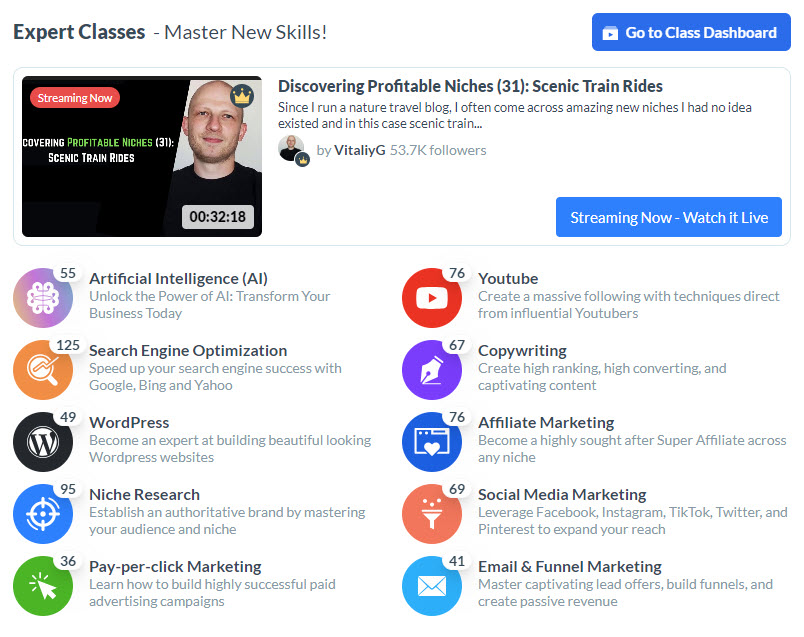
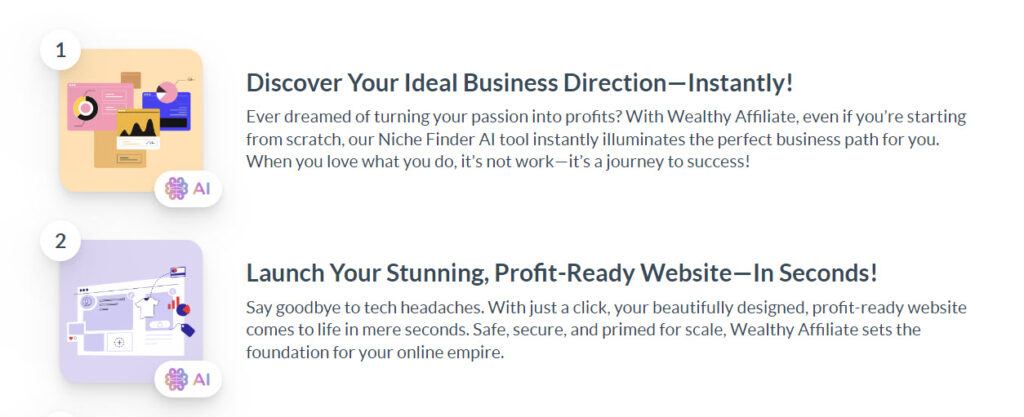
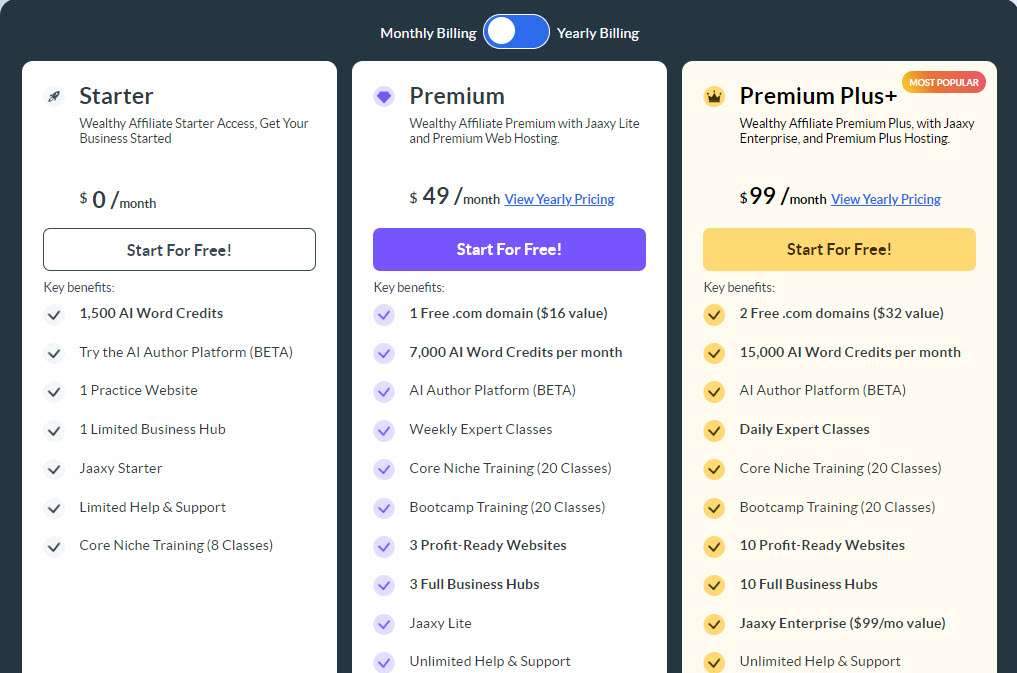
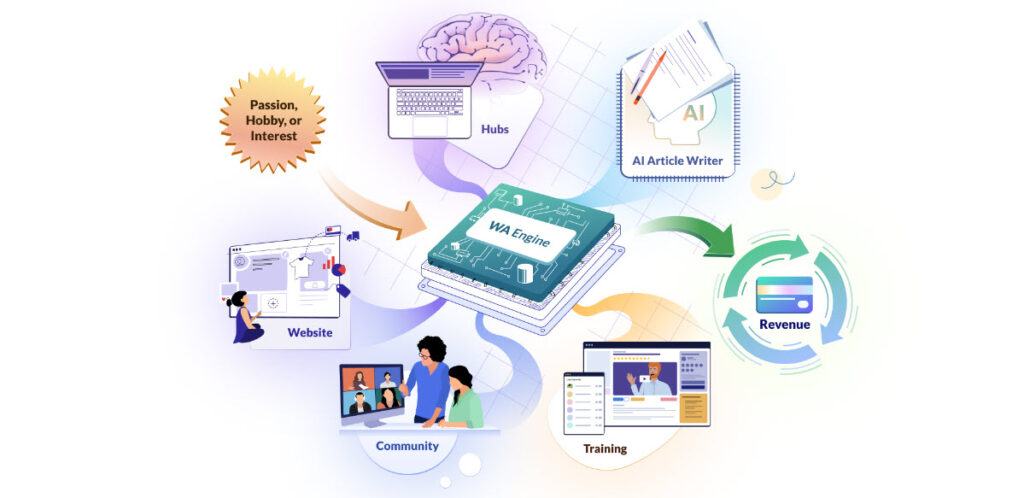


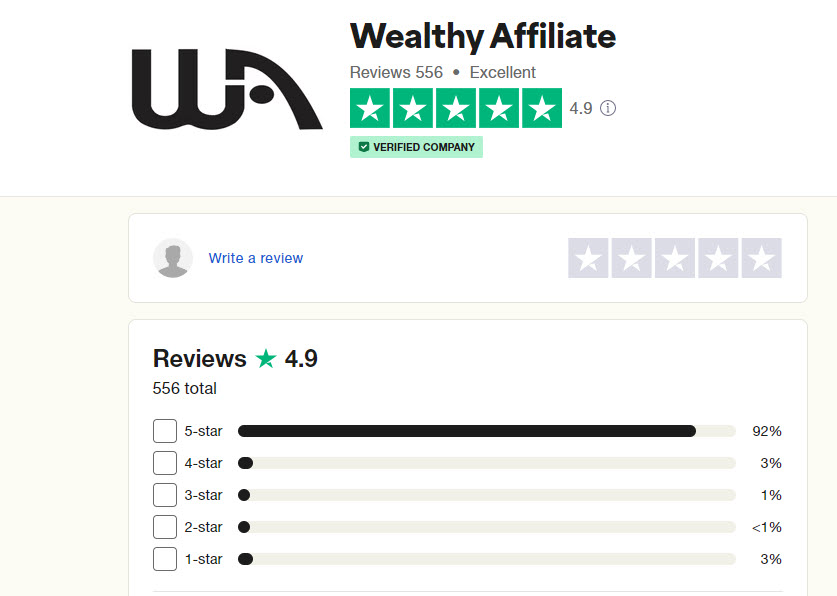


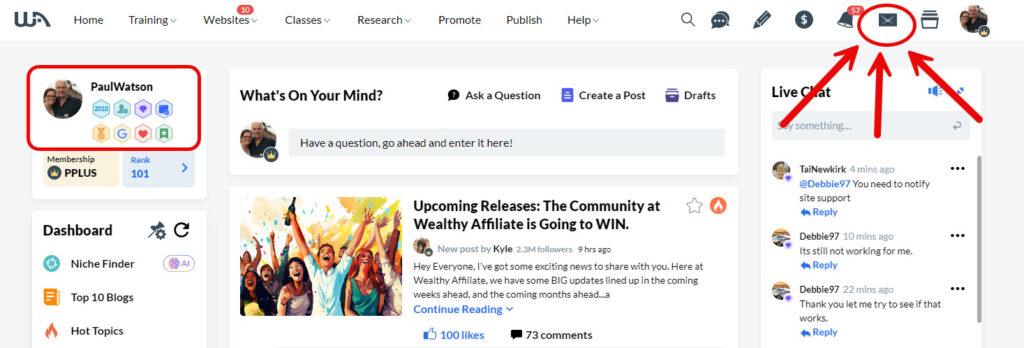






These are great tips! And what I like the most is the one about joining a learning platform. We need to learn in order to become good affiliate marketer and keep improving ourselves. This business is not as easy as other people makes it sound. You need to know how to choose a niche, how to choose keywords and how to SEO your website in order to rank. Joining a learning platform is really Paramount for affiliate marketer. And in such platforms you can get a mentor to guide you too.
Great post!
Thanks
Agreed
Thanks for stopping by
Paul
Excellent review about how to attain success in affiliate marketing. If all this tips can be followed, there is guarantee for the there would be a great success and possitive yield. Getting a niche that we know best is very helpful inorder not to fall victim of less quality and limited content. I learnt this in a hard way. The affiliate marketing website should be able to add value and solve people’s problem. Visitors and customers trust is very important and being transparent crown everything all. I usually come across many reviews that condem a product before they advertise their own product, is it an ideal way of doing affiliate marketing? I have to confirm that. All these tips are very useful tips I can’t joke about. I have bookmarked it for future reference.
HI Sella, I personally do reviews but if I am being honest, I prefer to stay away form the bagging types of reviews that slag off a product before recommending another. Althrough these rank and convert qite well I prefer to write about the good in a product, highlight any concerns and then compare to what I recommend.
Thanks for stopping by
Paul
Hi Paul Watson
Thank you for the informative post on how to make money with affiliate marketing. I have learned a lot and will put those tips into practice. I think you are right in saying that you have to give before you get. It would seem that too many websites are over-selling their product or service.
Very good tips you give there. Affiliate marketing can be a bit hard in the beginning when you don’t know where and how to start and what things to pay attention to mostly. Without proper guidance you could loose valuable time that can result in loosing any kind of incentive to continue on the long run. Thank you for the tips and hopefully they will help newcomers in this exciting journey.
Hey stratos
Glad they were of assistance
Thanks for stopping by
Paul